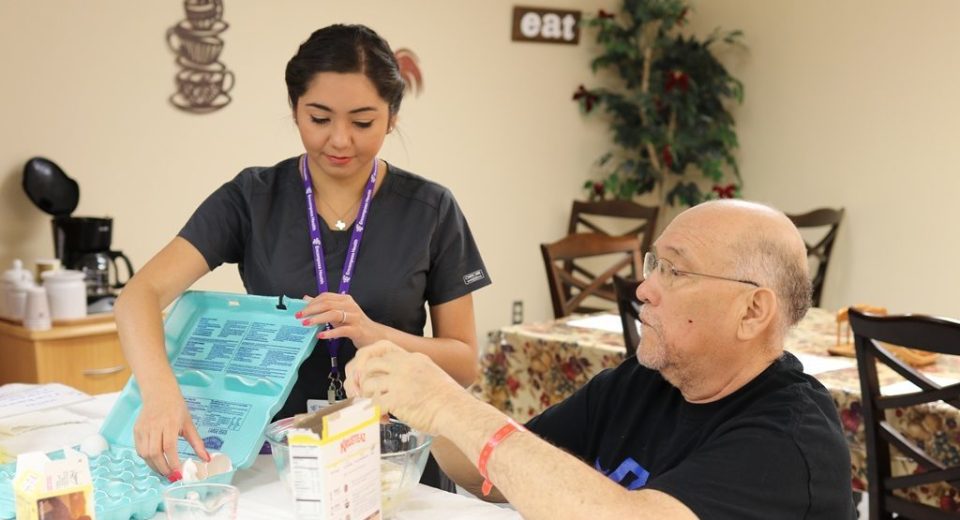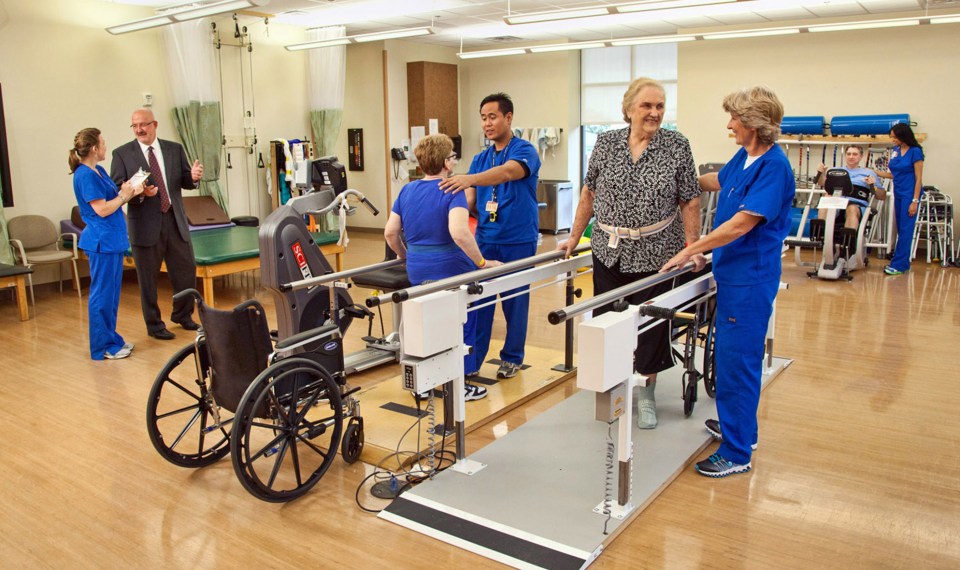The importance of an occupational therapist may not come to light until you need one after being diagnosed with a debilitating condition such as a stroke, brain injury, spinal cord injury or Parkinson’s disease. Occupational therapists play a critical role in helping patients return to their everyday routines. In many cases, activities such as brushing teeth, dining, golfing, gardening, getting dressed, bathing and even various social interactions must be relearned with the help of an occupational therapist.
However, there are several misconceptions about occupational therapy. Morgan Davis, MOT, OTR/L, rehab liaison and Paul Matlack, MS, OT, senior director of therapy operations at Encompass Health’s MidAmerica Rehabilitation Hospital, shares some of these common misunderstandings.
Occupational Therapy Will Help Me Find a Job
In the world of OT, “occupations” are defined as the activities we engage in every day, not only your job or career interests. This language can be confusing, but is actually much more inclusive. Occupational therapists help give you the tools needed to live your life independently and to the fullest, both physically and mentally—all skills that will be helpful in the job seeking process.
Occupational Therapists Only Work on Hands and/or Arms
It is the job of an OT to address people holistically, including upper extremities, but also their entire body, mind, and spirit. Occupational therapists work with patients who have various mental, social and emotional challenges, and support patients with cognitive issues, such as memory loss.
Occupational Therapy Is a ‘Bath Aide’
While it’s true that occupational therapists do help patients with self-care tasks such as bathing, they also assist with day-to-day activities including dressing, eating, preparing meals and other various activities both inside and outside of the house. Everything the patient needs and wants to do in daily life should be addressed by occupational therapy professionals.
OT Isn’t as Important as Physical Therapy
While physical and occupational therapy work together and are critical to a patient’s progress and both help patients regain independence, they play different roles. Physical therapists help restore function of the extremities to help patients achieve full mobility. Occupational therapists focus on helping patients perform activities of daily living teaching adaptation techniques when necessary performing activity analysis to address the person, environment, and important occupations.
Children Do Not Need Occupational Therapy
Occupational therapy is not bound by age and can be beneficial for anyone, from a newborn with developmental delays to a senior who seeks to enhance their safety.
The content of this site is for informational purposes only and should not be taken as professional medical advice. Always seek the advice of your physician or other qualified healthcare provider with any questions you may have regarding any medical conditions or treatments.



